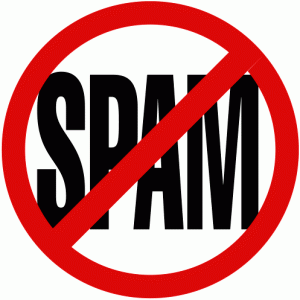 Oh boy, here's another example of Internet marketing spam / scam that I received as a blog comment…
Oh boy, here's another example of Internet marketing spam / scam that I received as a blog comment…
Hello Web Admin, I noticed that your On-Page SEO is is missing a few factors, for one you do not use all three H tags in your post, also I notice that you are not using bold or italics properly in your SEO optimization. On-Page SEO means more now than ever since the new Google update: Panda. No longer are backlinks and simply pinging or sending out a RSS feed the key to getting Google PageRank or Alexa Rankings, You now NEED On-Page SEO. So what is good On-Page SEO?First your keyword must appear in the title.Then it must appear in the URL.You have to optimize your keyword and make sure that it has a nice keyword density of 3-5% in your article with relevant LSI (Latent Semantic Indexing). Then you should spread all H1,H2,H3 tags in your article.Your Keyword should appear in your first paragraph and in the last sentence of the page. You should have relevant usage of Bold and italics of your keyword.There should be one internal link to a page on your blog and you should have one image with an alt tag that has your keyword….wait there’s even more Now what if i told you there was a simple WordPress plugin that does all the On-Page SEO, and automatically for you? That’s right AUTOMATICALLY, just watch this 4minute video for more information at. Seo Plugin
Let's dissect this…
- Here's the author info:
- seo plugin
- 0 approved
- SeoOptimizationxxx.com/x
- nhsfkpqf@gmail.com
- 23.231.7.41
GREAT name and email address for a ‘professional' SEO service, eh?
Those are the easiest first clues to to spam blog comments.
-
Then, this scammer doesn't know how to use a blog comment form to save his (or her) life, or the English language for that matter.Yes, you can read through the text and make sense of what he is saying, but that doesn't negate the fact that the scammer isn't actually an SEO professional… or a professional who is competent in the English language.
-
The advice is completely bogus, i.e. ‘nice keyword density of 3-5%'. Duh. As always, my advice is to write for humans, not search engines. The search engines ‘get it' when you blog regularly about a consistent theme. They also ‘get it' when you try to write to an algorithm… to the point that you will be penalized for trying to manipulate your rankings.
-
There is no such thing as a ‘simple WordPress plugin that does all the On-Page SEO, and automatically for you? That’s right AUTOMATICALLY'.
Nope, sorry, I hate to burst your bubble, but there is not such thing as a plugin that does ‘all the on-page SEO.
REAL bloggers do their own on-page SEO by crafting titles, tags, heading tags, image alts, slugs and everything else manually to stay in Google's good graces.
Comments, questions or suggestions? Please leave a comment below!
Cheers,

 A few months ago, I helped a friend
A few months ago, I helped a friend  Sometime ago, I turned off blog comments on the NPT Blog for awhile, because I was sick and tired of scanning through all the comment spam.
Sometime ago, I turned off blog comments on the NPT Blog for awhile, because I was sick and tired of scanning through all the comment spam.  I've gotten to the end of my rope with blog comment spammers who appear to be getting smarter.
I've gotten to the end of my rope with blog comment spammers who appear to be getting smarter.  While down in Vegas at CAC2006 I went to the Gun Shop for a little target practice.
While down in Vegas at CAC2006 I went to the Gun Shop for a little target practice.